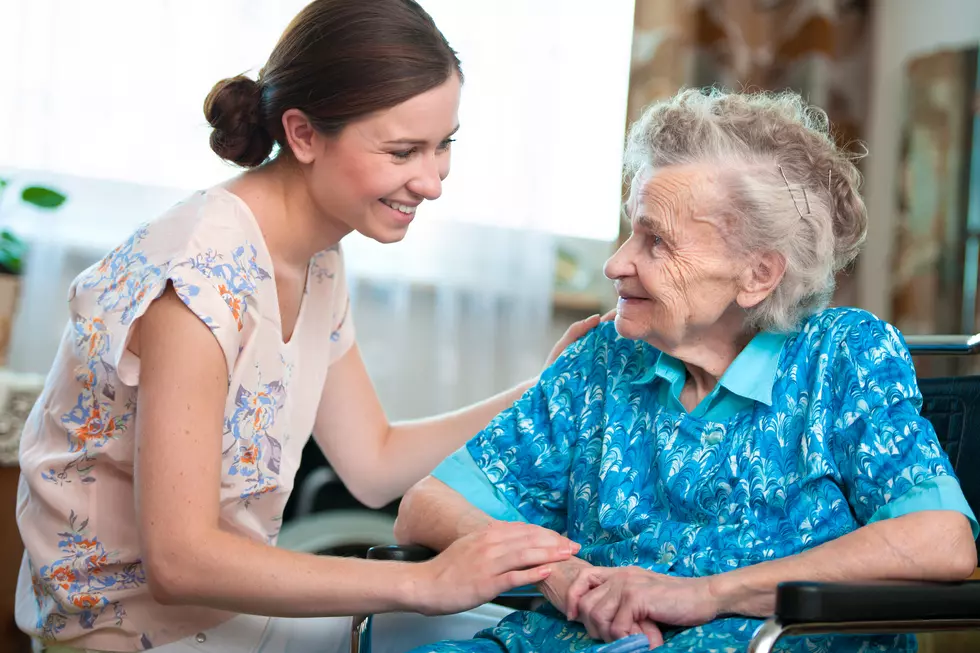
Caregiver burnout can exacerbate other mental health issues if unaddressed
About 53 million Americans became caregivers in 2020 when the COVID-19 pandemic hit, according to recent data from the National Alliance for Caregiving (NAC) and AARP.
However, the same study found that 40% of caregivers felt emotionally stressed by their caregiving responsibilities. This is called “caregiver burnout.”
What are some signs of “caregiver burnout?”
Isolation is a big sign, withdrawing from family and friends, said Matthew Grey, program manager of Care Plus NJ’s Family Support Center Program.
Loss of interest or taking pleasure in things you enjoy, feeling down, depressed, blue and cranky are other signs. Changes in appetite, changes in sleep patterns, weight gain, and weight loss also contribute to burnout.
He said stressed-out caregivers may feel sick all the time, become more prone to colds, and feel physically, emotionally, and mentally exhausted all the time.
What causes “caregiver burnout?”
Grey said many factors can cause this burnout. Role confusion is one cause. He said when people fall into a caregiver role, it’s usually to take care of a loved one such as a parent, a child, or a spouse.
“On one hand, you’re my spouse, and I rely on you for certain things and I have a certain dynamic and relationship with you, but now I’m also your caregiver. So now, you’re actually navigating two different roles. That can be a tough thing,” Grey said.
When taking care of a parent, a caregiver may feel anger and resentment because it’s not supposed to be this way. The parent takes care of the child. So, there’s a lot of confusion, he added.
There are also unrealistic expectations that can come along with role confusion.
The caregiver puts in all this work, effort, and time, and it’s not having the impact one expects it to. That can add to burnout, Grey said.
Lack of control is another cause of burnout. Oftentimes, when people fall into caregiver-type dynamics, they encounter many limitations including financial, emotional, and logistical.
“I have to work. I have to pay bills. I have to take care of my own family. But I also have to care for my loved one who needs to go to the doctor. I need to navigate and balance all of these different things at the same time. You’re constantly coming up with this boundary of like, this is not in my control,” Grey said.
Internal and external demands can cause caregiver burnout. Grey said with external demands, there could be siblings telling you that you have to take care of mom because you live the closest. But they don’t see all the things that you have to juggle in your life and what that would mean.
Internal demands come from within the caregiver. Grey said you’re constantly telling yourself, “I have to take care of mom. I need to take care of mom. I want to take care of mom.”
How do caregivers cope to prevent burnout?
Ask for help. Grey said this can be very difficult for someone like a caregiver because he or she always feels the need to be proactive. They want to take care of someone. They want to be in charge. They see themselves as being self-sufficient and strong and don’t like to ask for help. They see it as a failure.
Grey said it’s important that caregivers talk to other caregivers. They can help support or guide you in a way that other people who are not caregivers can’t.
Have a social support system---someone or multiple people you can vent to when needed. Grey said this can be a great way to help mitigate caregiver burnout.
“Setting realistic goals for yourself over what you can and can’t accomplish. Acknowledging what the limitations are say okay, what can I do today? What’s feasible? Prioritizing. Making to-do lists and letting some things on that to-do list, go,” Grey said.
What happens if you don’t address caregiver burnout?
It can lead to other serious health issues, Grey said. Self-care is so important. Finding balance and quiet moments every day will help caregivers feel grounded and centered. This, in turn, will allow them to do their jobs well and properly take care of the person they are responsible for, daily.
“When we’re talking about self-care, especially in a caregiving role, it’s not a luxury. It’s a necessity,” Grey said.
Jen Ursillo is a reporter and anchor for New Jersey 101.5. You can reach her at jennifer.ursillo@townsquaremedia.com
Click here to contact an editor about feedback or a correction for this story.



